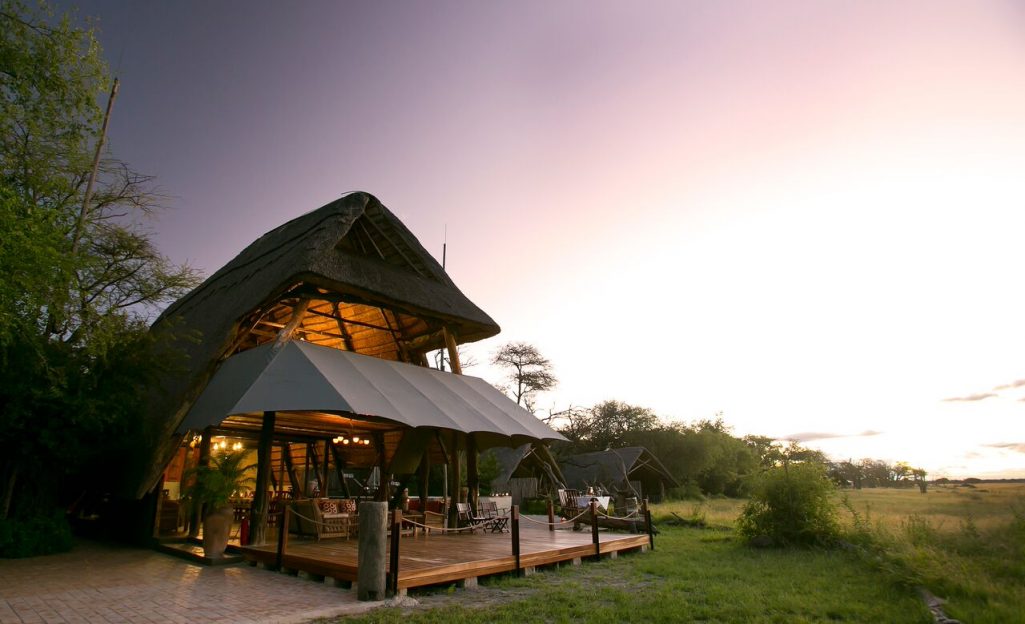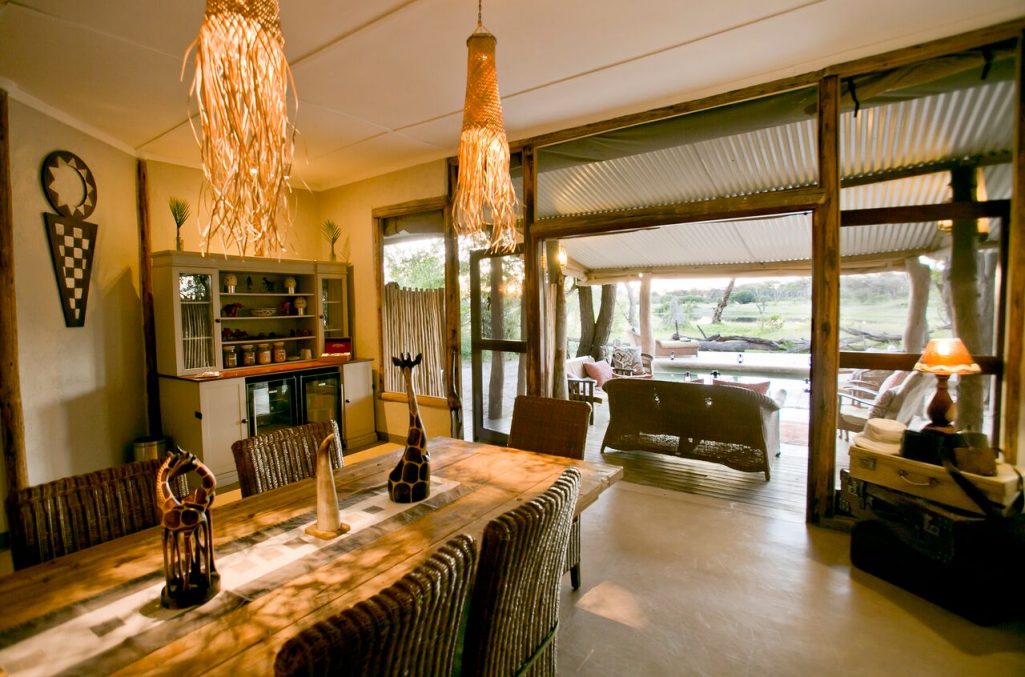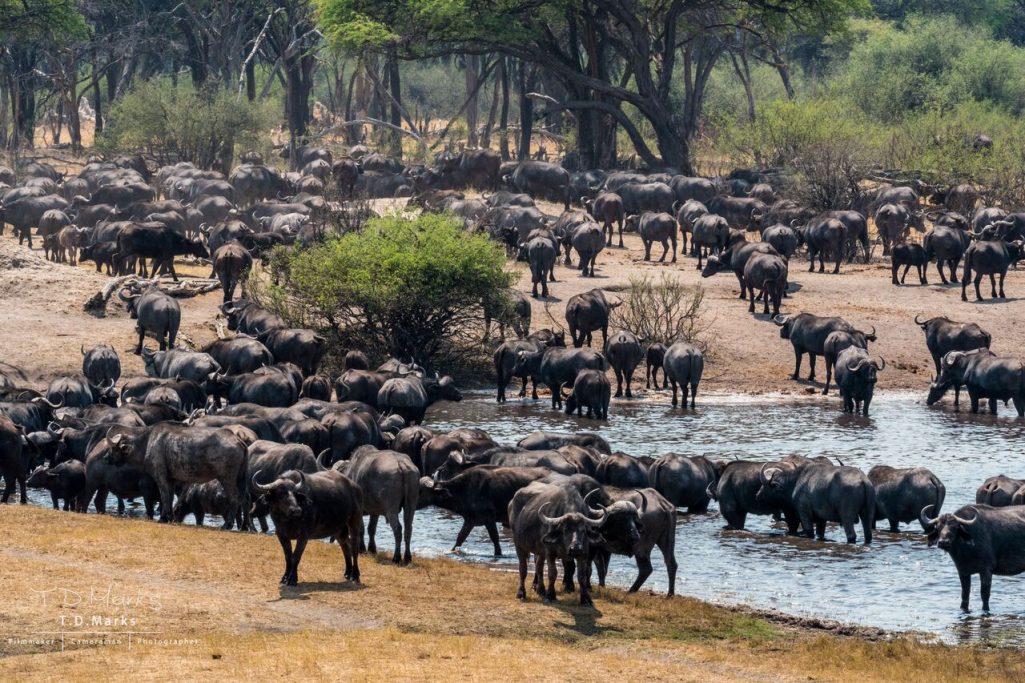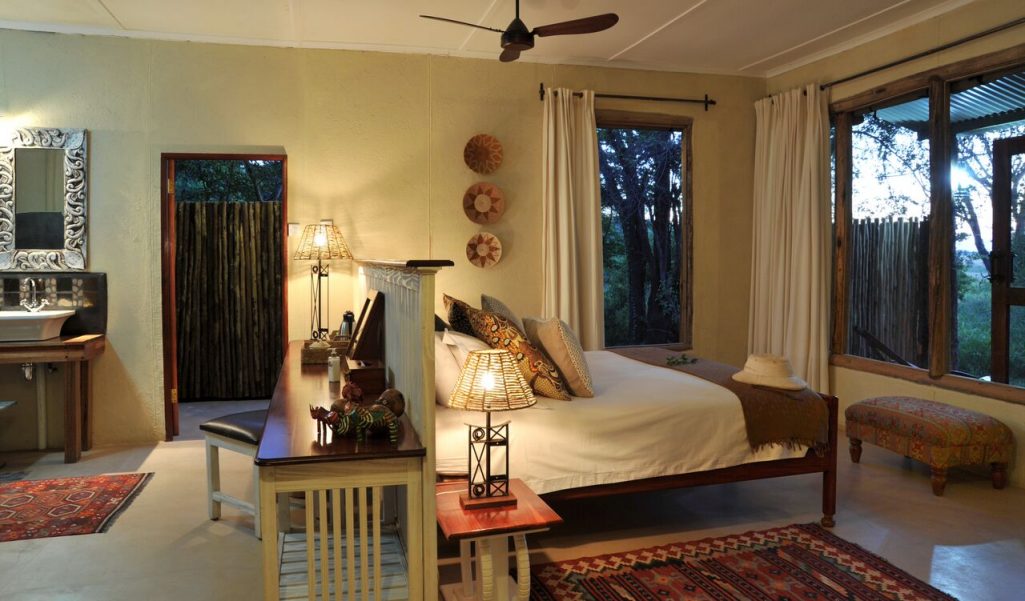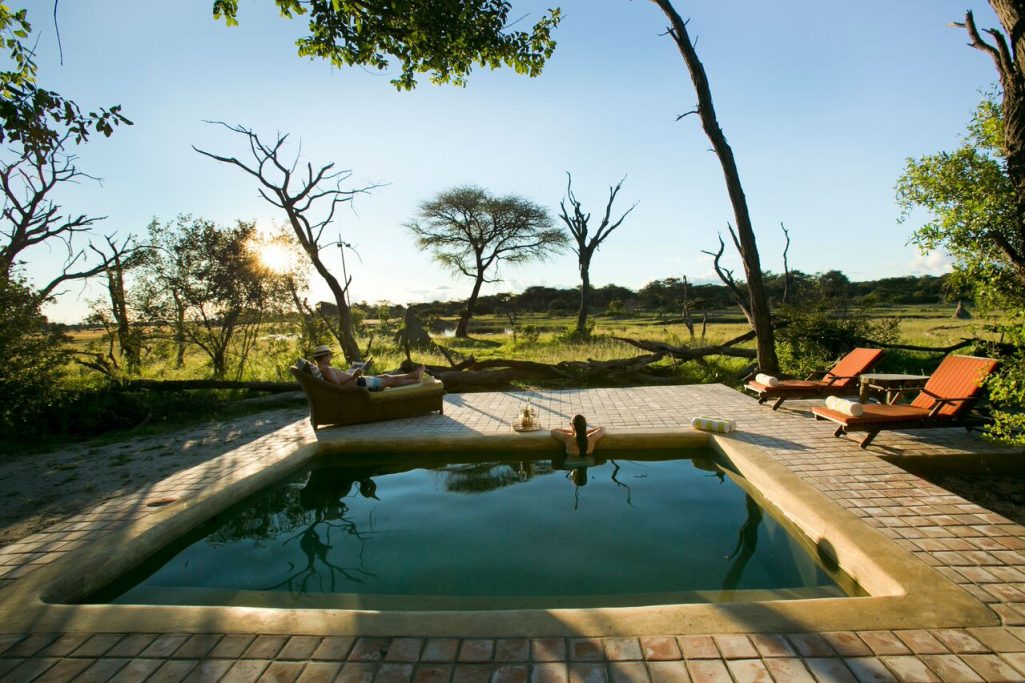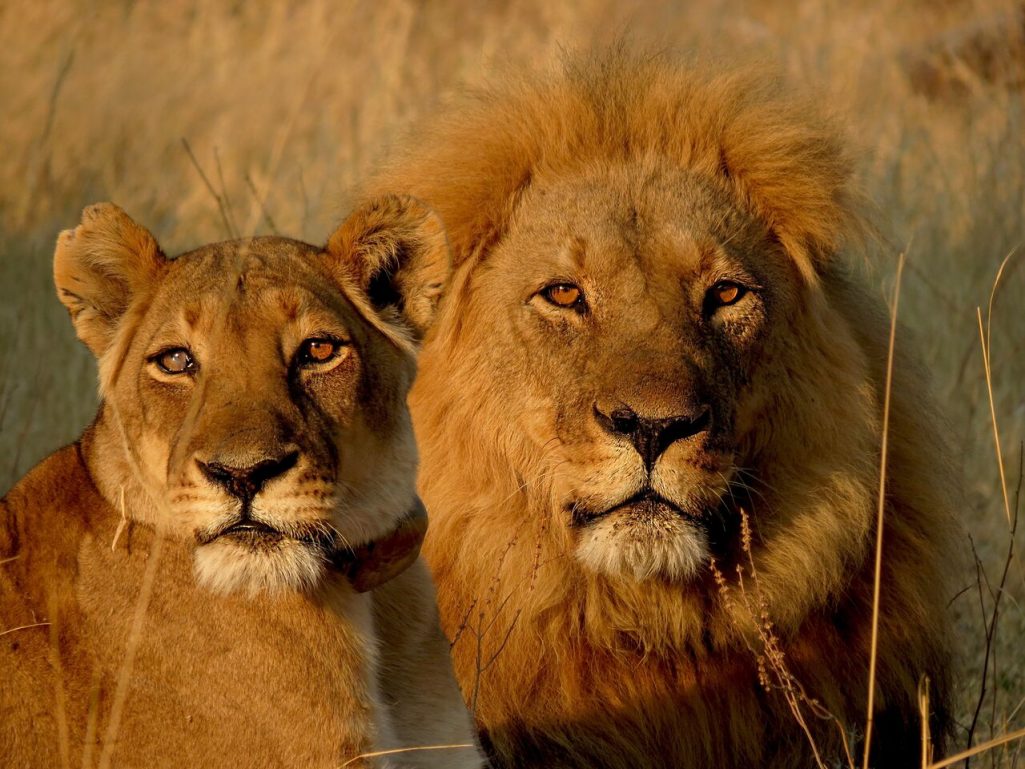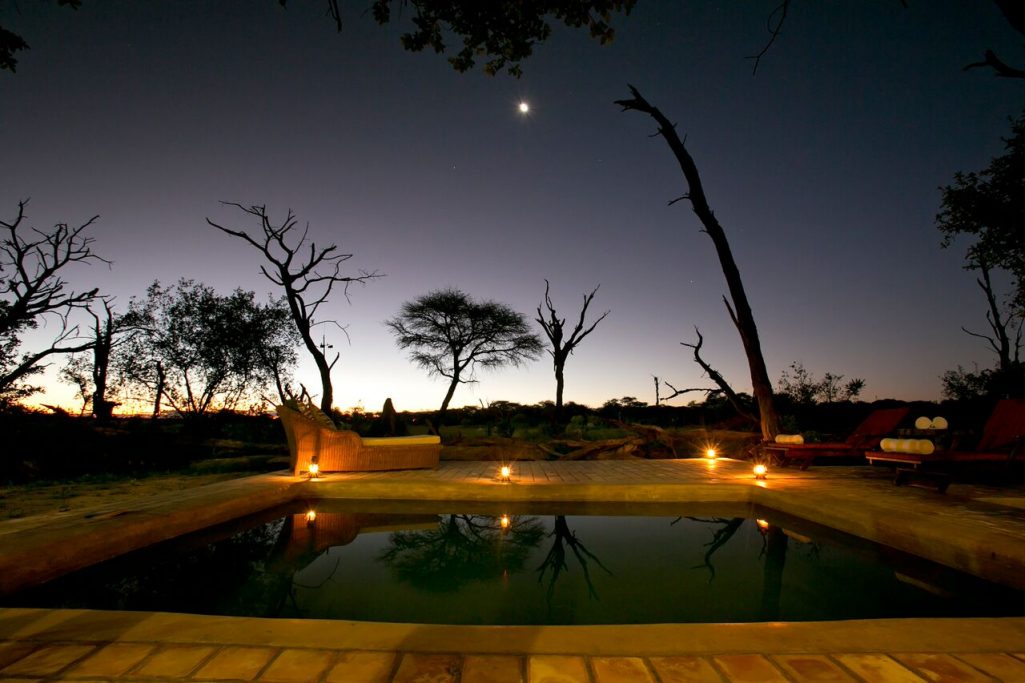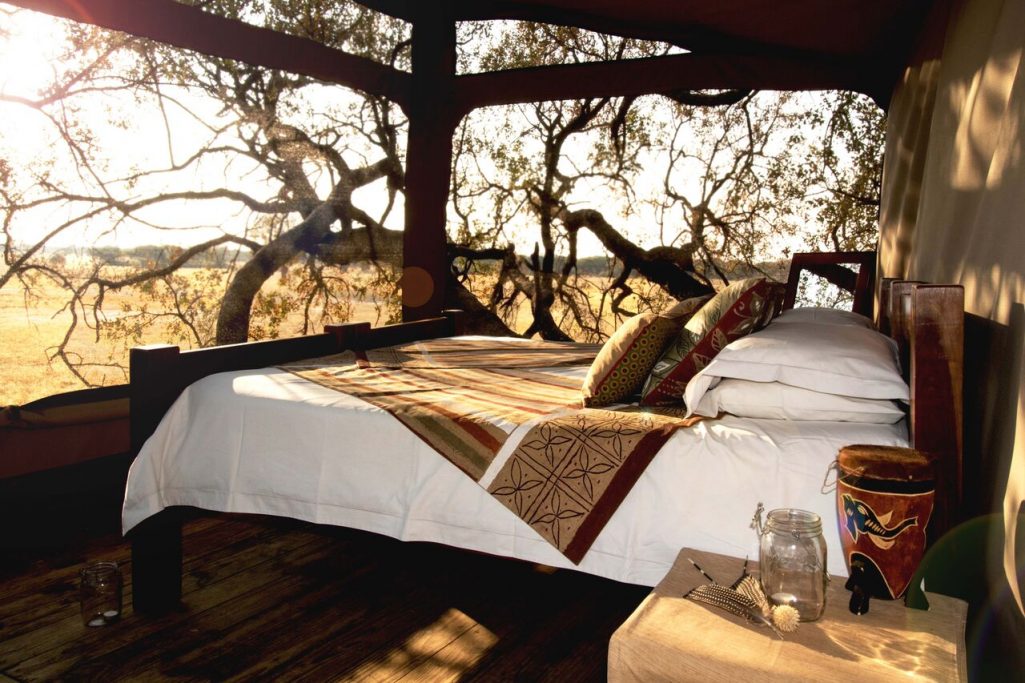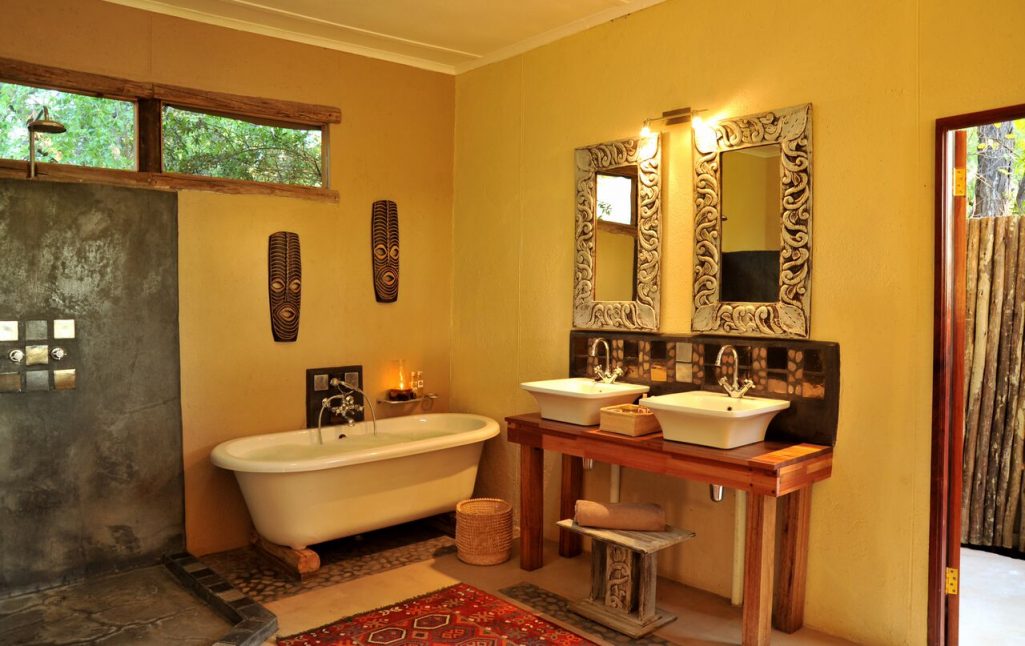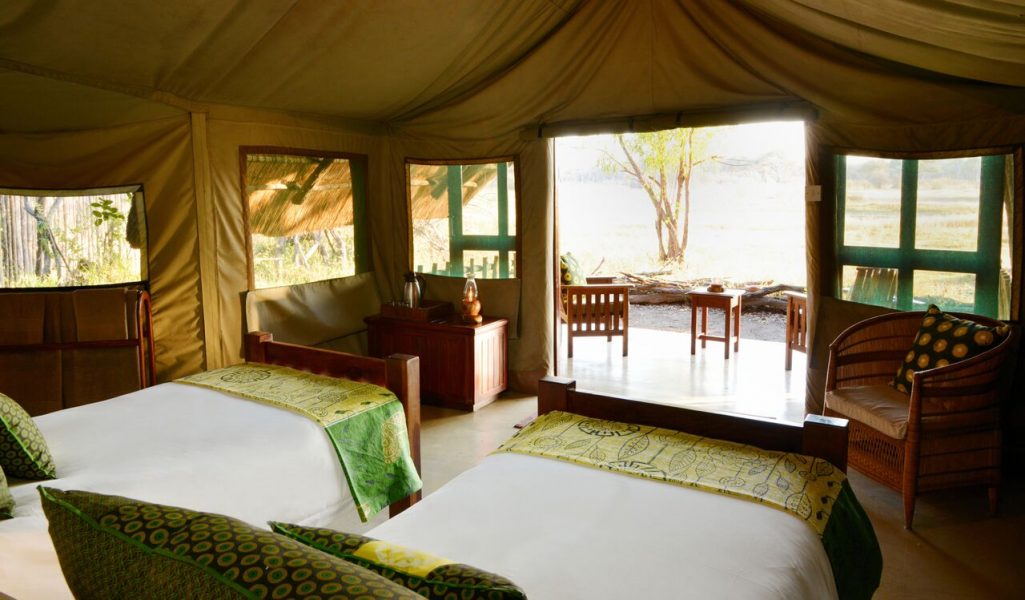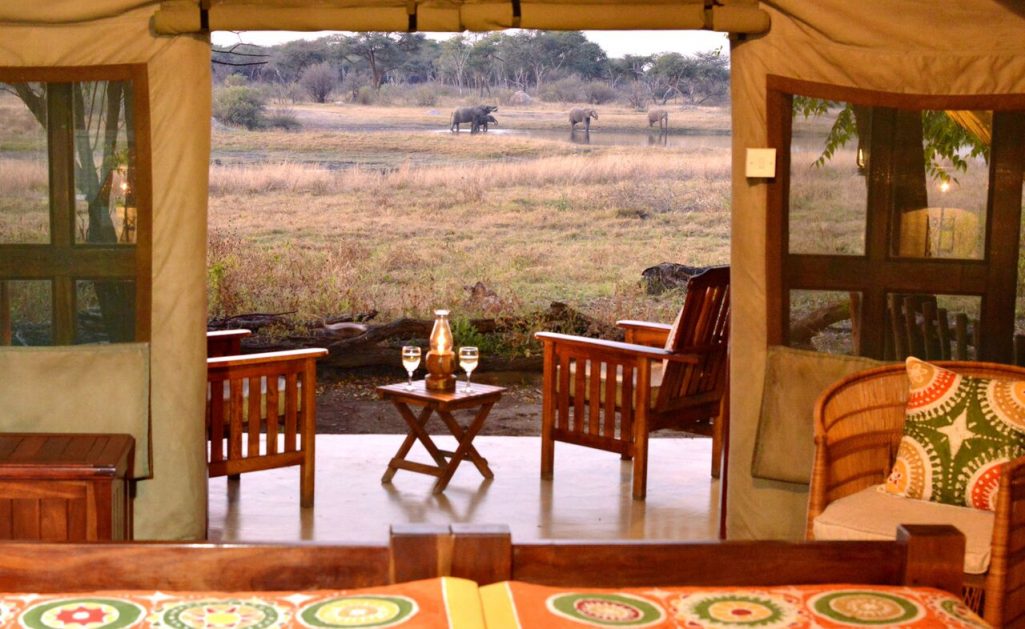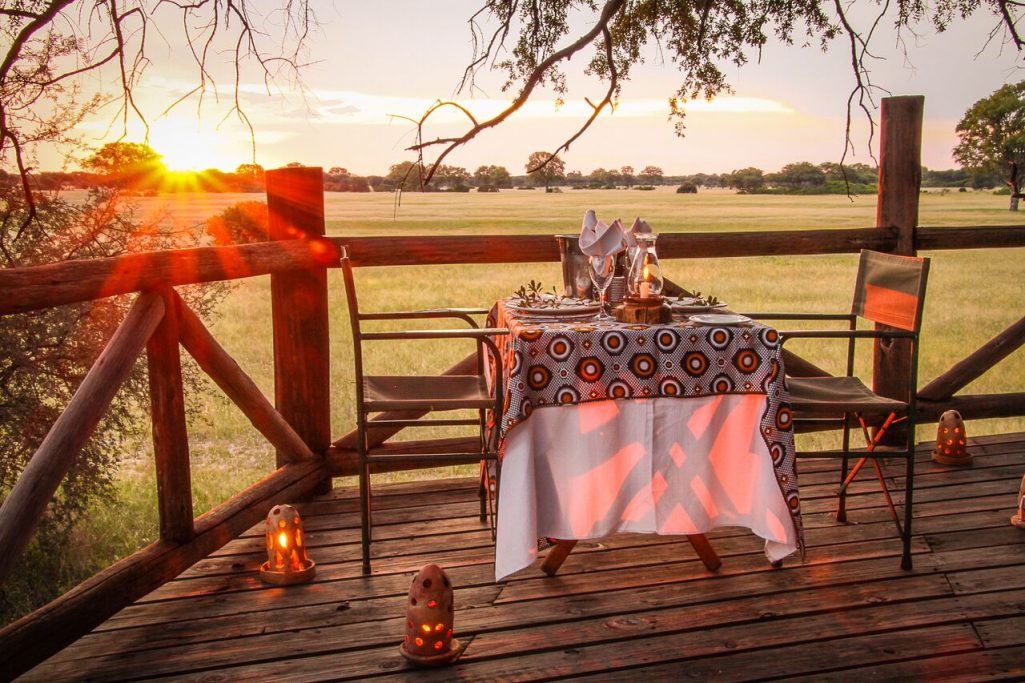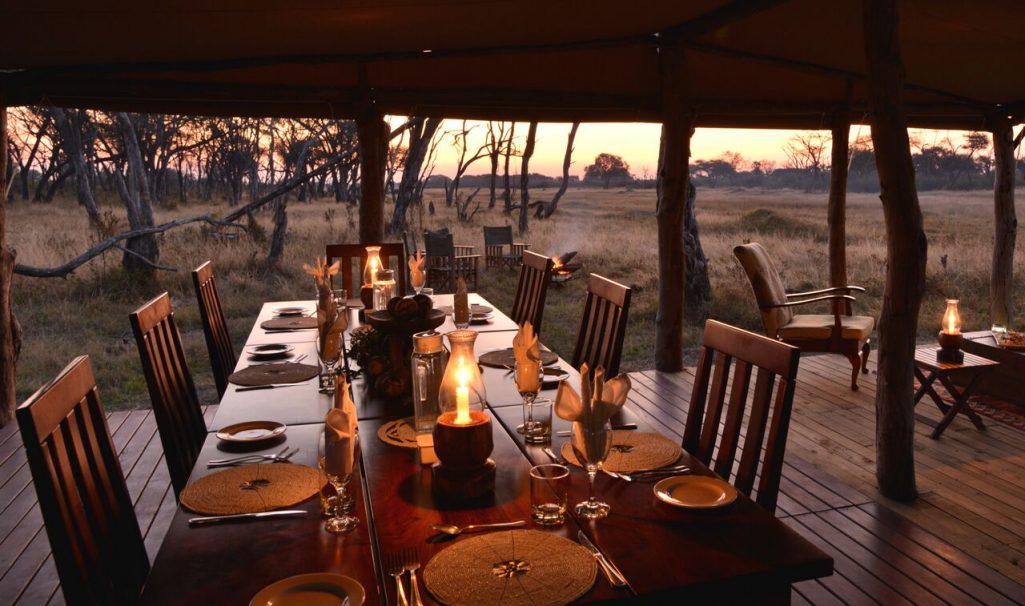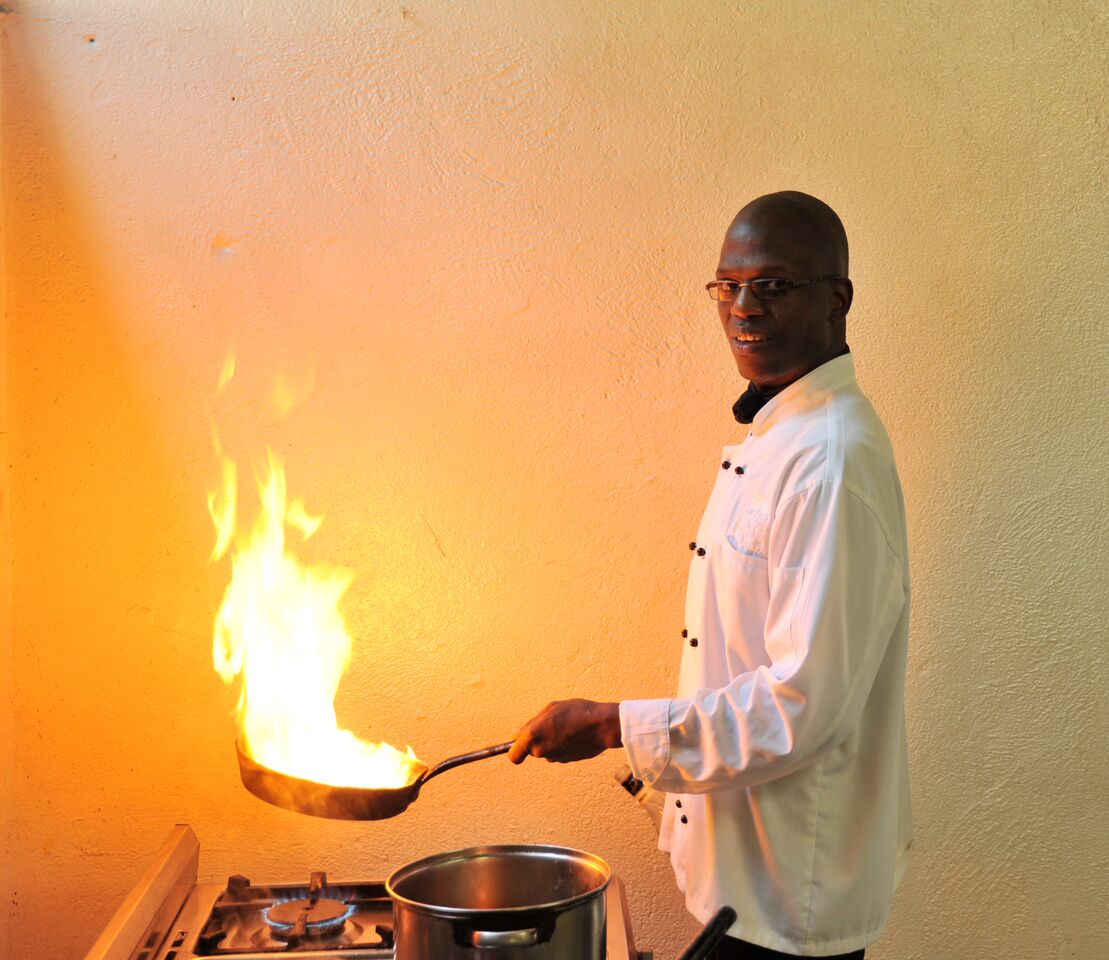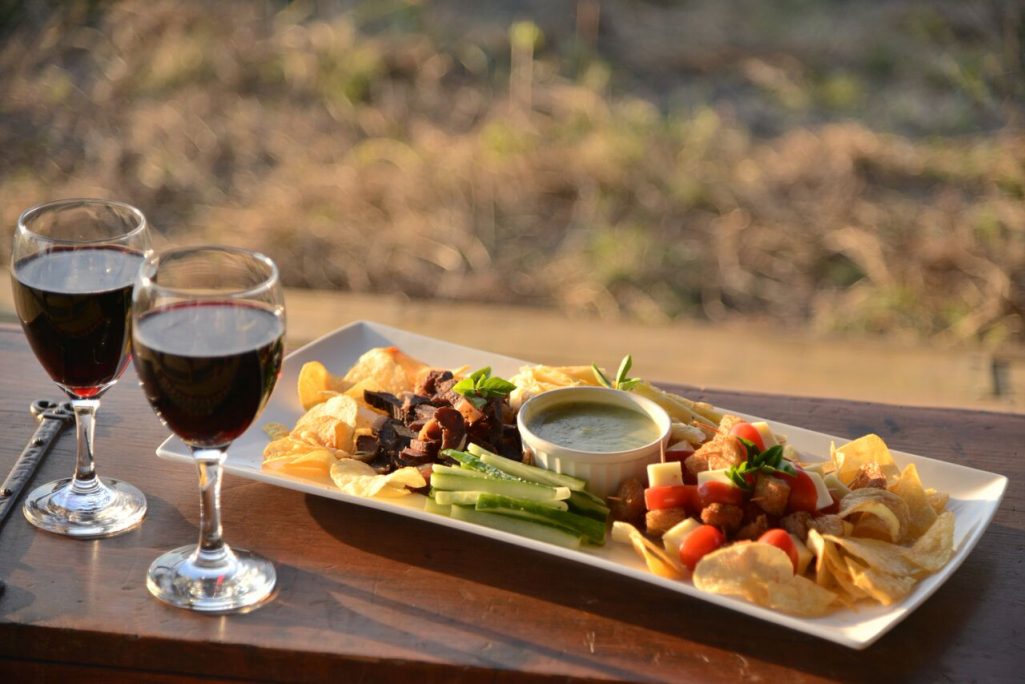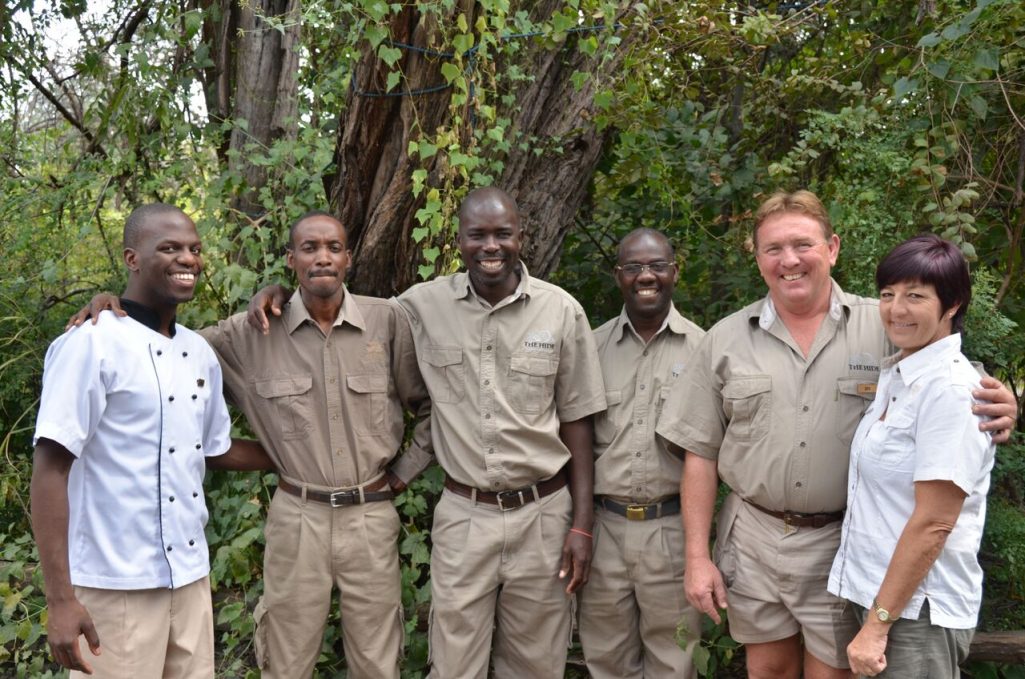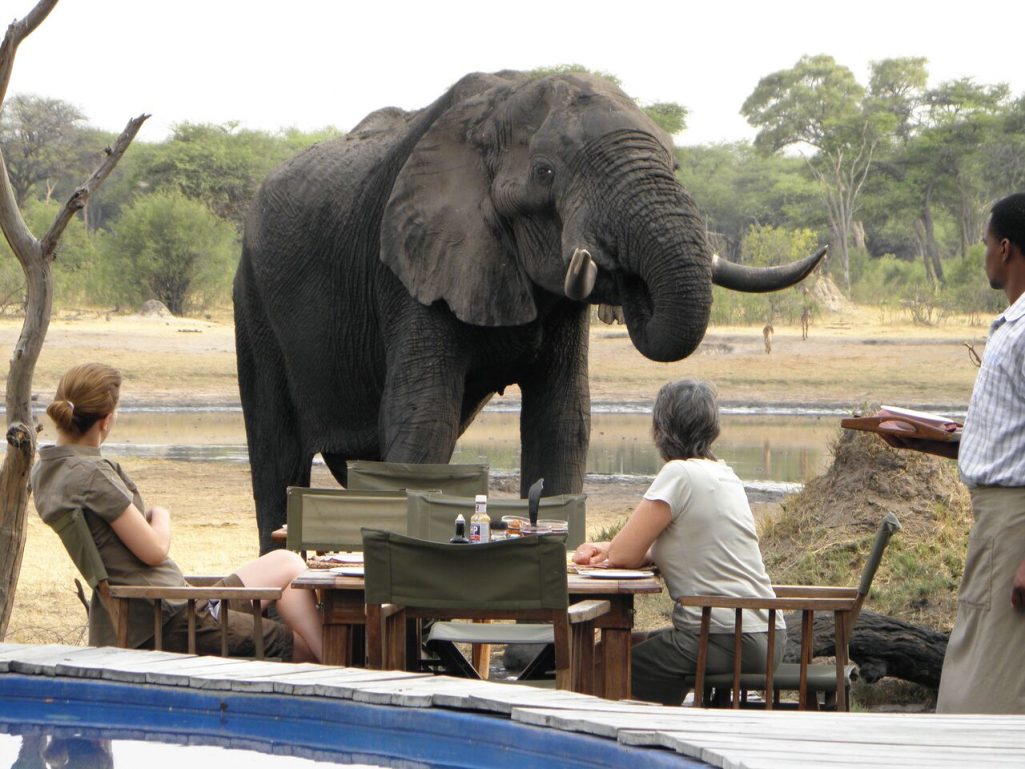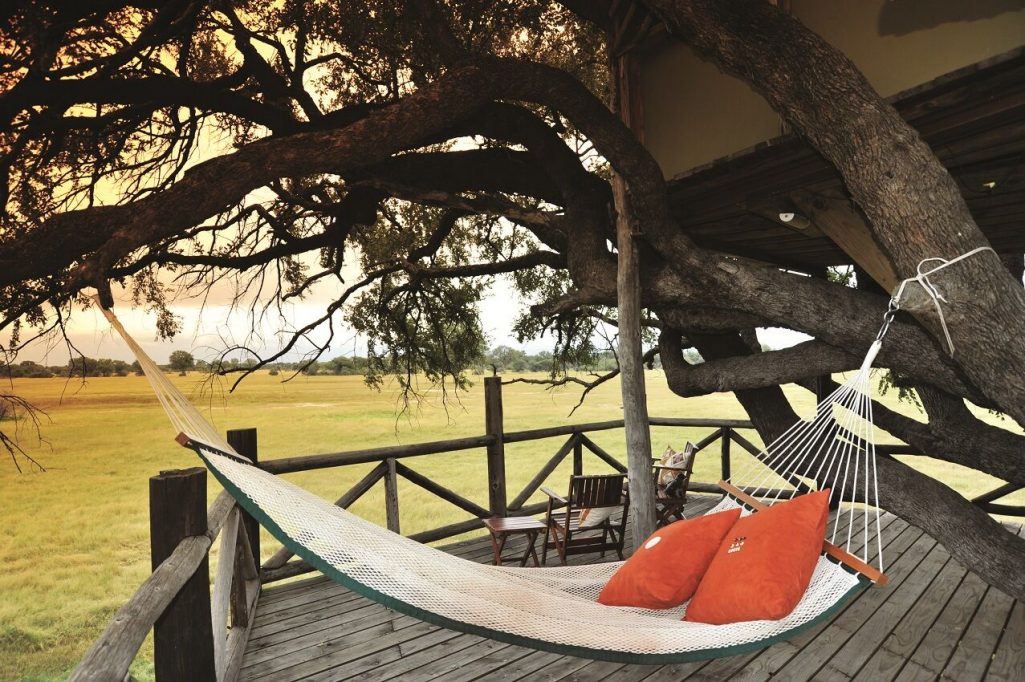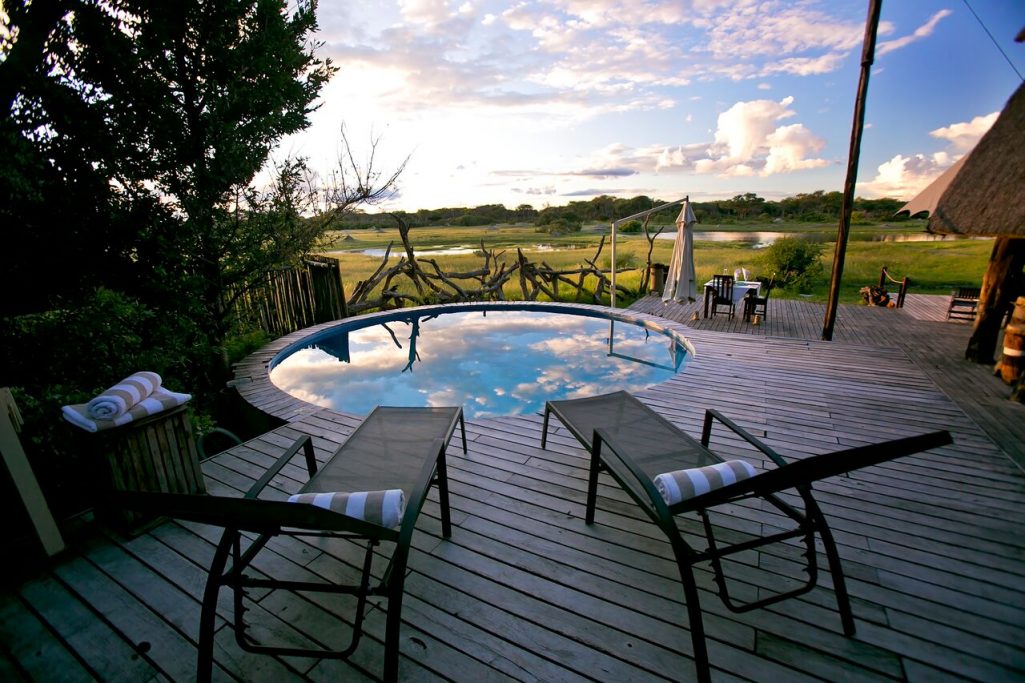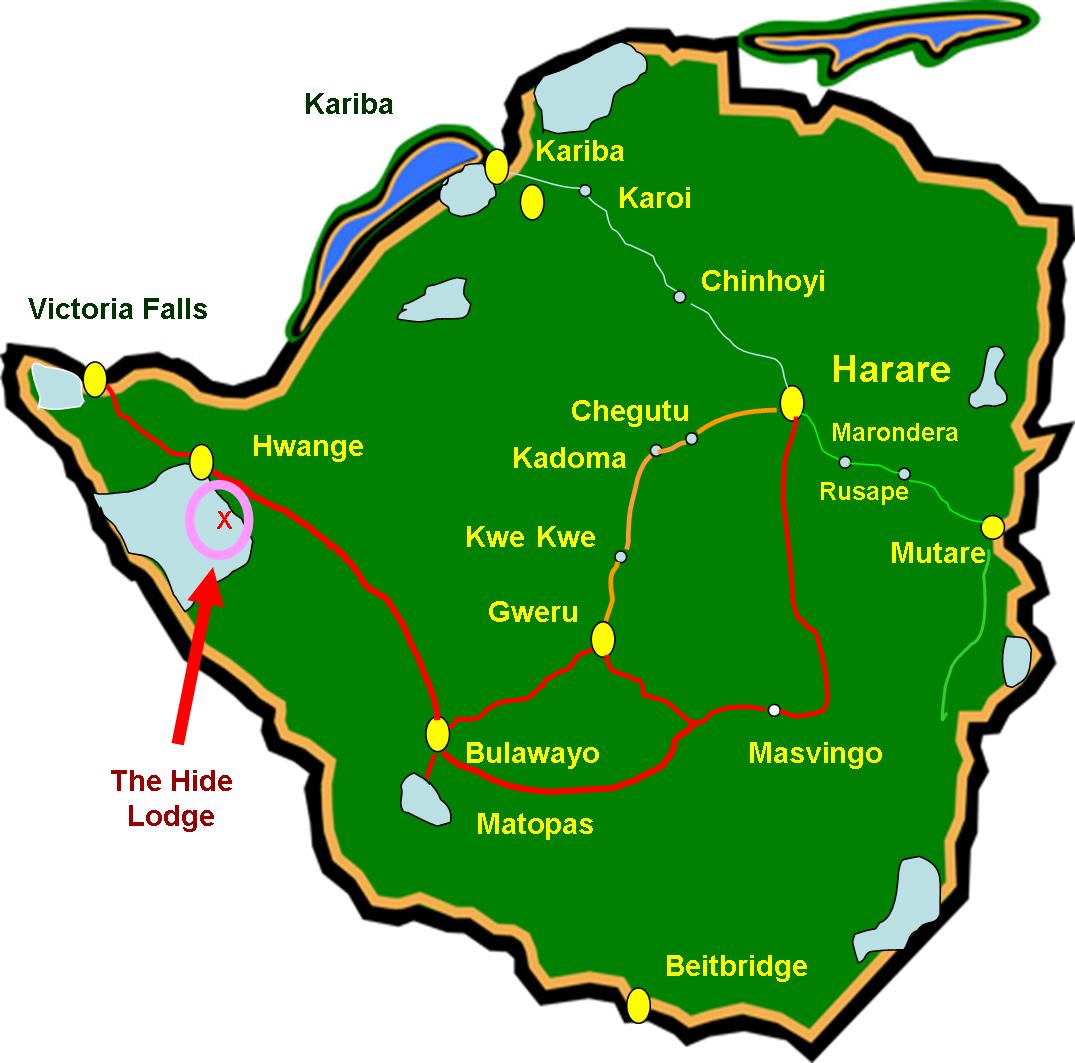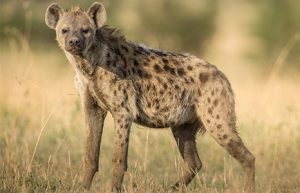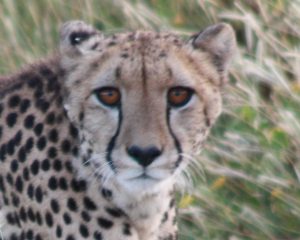The Hide
Situated in the Hwange National Park
The Hide Safari Camp is situated in a private concession on the Eastern boundary of the famous Hwange National Park. It opened in September 1992 and was built by the late Tom Preston who had a passion for wildlife and conservation. Since that time The Hide has continued to grow and develop and over the years has earned its reputation as a consummate safari destination for both the exceptional wildlife experience and the hospitality it offers.
The Hide has been designed to accommodate up to twenty plus guests in ten Delux tents, two of which are luxury family or honeymoon tents. The tents are a combination of canvas and thatch and are uniquely styled and spacious.All are mosquito-proofed and have en suite bathrooms, a fans for your comfort in summer and extra warm blankets and hot water bottles for the cooler winter months. One tent is wheelchair friendly. See ‘Accommodation’ below.
In addition to the Delux tents there is ‘Tom’s Little Hide’ which is a three bedroomed safari house which accommodates six adults and four children. Additional guests can be accommodated in a nearby Delux tent.
Having been voted ‘Best Safari Camp – Tented’ sixteen times is testament to the numerous positive reviews on travel websites.
The Hide really is a place to go an chill out and enjoy what the beautiful Zimbabwean bush has to offer. Not only is the accommodation unique and very well appointed, the food is of a very high standard and the guides and staff are really welcoming and attentive and will ensure your stay is very memorable. Whilst nothing is guaranteed when it comes to wildlife the waterhole does attract a diverse range of animals and birds and the daily passing parade always offers something special.
Wake up to the first calls of robins and hornbills as the dawn light creeps in, enjoy a cup of freshly delivered coffee on your veranda and watch elephants, kudu, giraffe and zebra come down to the mist-edged waterhole. At the end of the day, soak in a soothing hot bath as the buffalo stroll silently by or enjoy an energising outdoor shower under the stars.
The hub of the camp is the signature “A” frame lodge which houses the dining room, a downstairs sun lounge and a large comfortable lounge / viewing area upstairs. There is also a plunge pool near the main lounge and dining room.

